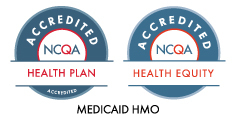
Manage Care

Plan All-Cause Readmissions Tip Sheet
Measure Description
The number of members 18 years of age and older with acute inpatient and observation stays during the measurement year followed by an unplanned acute readmission for any diagnosis within 30 days.
Note: This is an inverse measure; a lower rate of readmissions qualifies for more CBI points.
Incentives are paid to the linked primary care provider (PCP) on an annual basis, following the end of quarter four. For additional information, refer to the CBI Technical Specifications.
- Administrative members at the Index Discharge Date.
- Dual coverage members.
- Members in hospice, receiving hospice services or who died during the measurement year.
- Acute hospitalizations with any of the following on the discharge claim:
- A principal diagnosis of pregnancy or perinatal condition.
- A planned hospital stay using any of the following:
- A principal diagnosis of maintenance chemotherapy.
- A principal diagnosis of rehabilitation.
- Organ transplants (kidney, bone marrow, organ and introduction to autologous pancreatic cells).
- Potentially planned procedures without a principal acute diagnosis. For example, coronary artery bypass, drainage of the upper extremity and fusion of the lumbosacral joint without a principal acute diagnosis.
- Hospital stays where the Index Admission Date is the same as the Index Discharge Date.
Data for this measure is collected using claims.
According to the Journal of Family Practice, common contributing factors to readmissions are:
- Feeling unprepared for discharge.
- Difficulty performing daily activities.
- Difficulty accessing discharge medications.
- Trouble adhering to discharge medications.
- Lack of social support.1
Findings from the Agency for Healthcare Research and Quality indicate that Black and Hispanic patients experience higher rates of potentially avoidable readmissions than White patients. Several factors can contribute to disparities in readmissions, including:
- Language barriers and access to interpreters.
- Health literacy.
- Culturally competent patient education.
- Social determinants of health.
- Mental health.
- Comorbidities.2
[1] White, MD, B., Carney, PhD, P., Flynn, MD, J., Fields, MD, MHA, S., & Department of Family Medicine. (2014, February). Reducing hospital readmissions through primary care practice transformation. JFP. Retrieved from https://www.mdedge.com/jfponline/article/80074/practice-management/reducing-hospital-readmissions-through-primary-care.
[2] https://essentialhospitals.org/wp-content/uploads/2016/01/OMH_Readmissions_Guide.pdf.
- Educate all members to:
- Call their PCP office for a follow-up appointment after their hospital discharge.
- Call the Alliance Nurse Advice Line: 844-971-8907, available to all Alliance members 24 hours a day, 7 days a week, if questions or concerns arise and they are unable to reach their PCP.
- Use Ask Me 3®: Good Questions for your Good Health during visits to encourage them to ask three specific questions of their providers to better understand their health conditions and what they need to do to stay healthy.
-
-
- What is my main problem?
- What do I need to do?
- Why is it important for me to do this?
-
- Use the Five Whys to gain insight from the member to understand the factors that brought them to the hospital. For example, an interview might reveal that a member did not take her medication, which contributed to her rehospitalization.
- Why did she not take her medication? She did not take it because she did not have it.
- Why? She did not pick it up from the pharmacy.
- Why? She did not have transportation to the pharmacy. Continue to ask until you have identified opportunities that your team can address.
- Assign clinical staff to:
- Monitor the Linked Members Inpatient Admissions report on the Provider Portal as a tool to track linked members who were recently admitted to a hospital.
- Contact patients who were recently discharged from inpatient care to bring them in for a follow-up visit. This can be accomplished through a telehealth visit and counts for the Post-Discharge Care CBI measure. Some clinics have had success prioritizing schedules for follow-up visits. Post-discharge visits via telehealth are proven to be as effective as in-person visits and can be more cost effective.3
- Use the follow-up visit to educate the patient about his or her diagnosis and medicines, and assess the degree of the patient’s understanding of the discharge plan and medications. Successful techniques include using the Teach-Back Method to improve patient understanding and adherence.
- Contact the patient a few days after the post-discharge visit to reiterate the care plan and check in with the member. Post-discharge telephone follow-up calls are shown to reduce hospital readmissions and are most effective close to the date of discharge.
- Track and trend your clinic’s most vulnerable patients. Attempt multiple outreach efforts to those who are most fragile before they are readmitted. For members at a high risk of readmission, provide:
- Medication reconciliation.
- Self-management training for members and caregivers to help members identify when to manage acute deterioration and when to seek timely care from their PCP.
- Implement post-discharge clinics for an innovative way to improve transition of care and decrease readmission rates.
[3] Areeba Zain, Derek Baughman, Abdul Waheed. Hospital Readmission Rates for Patients Receiving In-Person vs. Telemedicine Discharge Follow-Up Care. JABFM March 2024, 37 (2) 166-171; Retrieved from https://www.jabfm.org/content/37/2/166.abstract.
- Alliance Cultural and Linguistic Services are available to network providers.
- Language Assistance Services – Request materials at 800-700-3874, ext. 5504.
- Telephonic Interpreter Service – Directly access a telephonic interpreter 24 hours a day, 7 days a week.
- Interpreter Services – Can be requested for the appointment with the member.
- Virtual Remote Interpreter (VRI) Service – When an in-person interpreter might not be available or easy to access.
- For information about the Cultural and Linguistic Services Program, call the Alliance Health Education Line at 800-700-3874, ext. 5580 or email us at [email protected].
- Alliance Enhanced Care Management (ECM) and Community Supports.
- Refer Alliance members through the Alliance Provider Portal, email ([email protected], mail or fax, or by phone at 831-430-5512.
- For Complex Care Management and Care Coordination, call the Care Management team at 800-700-3874 (TTY: Dial 711).
- Alliance Health Education and Disease Management Programs – Health Programs Referral Form. For any questions, please call the Alliance Health Education Line at 800-700-3874, ext. 5580.
- Alliance Transportation Services for patients with transportation challenges.
- For non-emergency medical transportation (NEMT) services, call 800-700-3874, ext. 5640 (TTY: Dial 711).
- For non-medical transportation (NMT) services, call 800-700-3874, ext. 5577 (TTY: Dial 711).
- Always Use Teach-back! Toolkit – Institute for Healthcare Advancement.
- Behavioral Health Primary Care Provider (PCP) Referral Form.
- Guide to Improving Patient Safety in Primary Care Settings by Engaging Patients and Families – Agency for Healthcare Research and Quality.
Contact us | Toll free: 800-700-3874


